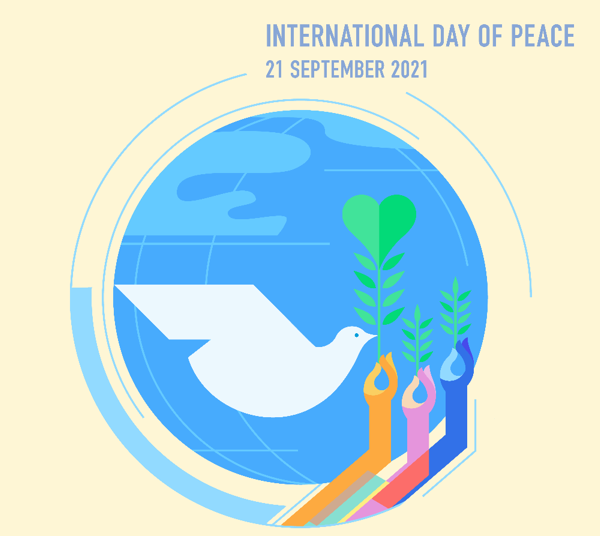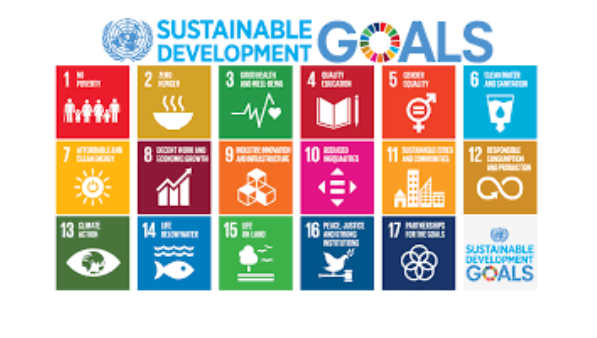Celebrating International Day of Peace in the Workplace

This year, as we heal from the COVID-19 pandemic, the United Nations asks for a focus on how to help everyone recover better, how to build resilience, and how to transform our world into one that is more equal, just, equitable, inclusive, sustainable, and healthier.
How can these ideals contribute to improving our company culture and creating an amazing workplace?
Resilience
Resilience is the ability to bounce back after a setback or a stressful experience. In today’s fast-paced world employees are expected to be “on” all the time. The pandemic has led to more people working remotely, so the boundaries of work and home have become blurred. This can be positive, but it also has a negative side.
Addressing resilience is an integral part of workplace culture. When you succeed in building a resilient workforce, your employees handle stress better and feel happier.
Help your employees build resilience by providing opportunities for detachment breaks, so that they can step away from their work and reset their energy. Encourage communication and compassion amongst colleagues.
Building resilience in your team pays dividends – a study done by PwC showed that initiatives and programs that fostered a resilient and mentally healthy workplace returned $2.30 for every dollar spent — with the return coming in the form of lower health care costs, higher productivity, lower absenteeism, and decreased turnover of staff.
Diversity
Ever heard the phrase ‘think outside the box?’ A group of people who are of the same race, culture, age, or education tend to have a similar outlook and thinking process. Hence, the box. That desire for creative and lateral thinking should lead to a desire to hire a diverse team. Diversity embraces more than just race or culture. It can also include sexual orientation, intellect, education, socio-economic status and religion or spiritualty.
More of the same gets you more of the same. It may lead to stability, but it won’t lead to growth. A diverse workforce is a breeding ground for innovative ideas, and one of the major benefits of innovation is its contribution to economic growth.
Equity
Workplace equity is the concept of providing fair opportunities for all employees based on their individual needs. Equity is about “leveling the playing field,” so that everyone gets the resources they need to be able to access opportunities in the company.
Here are some examples of equity programs that can help level the workplace playing field.
- Make job descriptions available and accessible: Give everyone an equal opportunity to get fully trained for their position, so that they can do their job well.
- Provide education and training programs: Help employees that have had a disadvantage due to their education to advance their careers.
- Make benefits equitable: Spousal health insurance should be available to same sex and non-traditional families.
Inclusion
A close companion to diversity and equity, inclusion means that everyone is accepted. You can have a diverse workforce without inclusion. If people don’t feel accepted for who they are, or they don’t feel they belong, the diversity won’t be effective.
No matter what race, religion, education level or any other aspect of their person, they need to feel they are a valuable member of the team.
According to research by the Limeade Institute and Artemis, employees who feel included:
- Are 28% more engaged at work
- Have 19% greater well-being in their lives
- Are 43% more committed to their company
- Are 51% more likely to recommend their company as an amazing place to work
- Typically intend to stay with their company three times longer
Sustainability
The Harvard Business School defines sustainability as doing business without negatively impacting the environment, community, or society. According to the Environmental Protection Agency, sustainability means to create and maintain the conditions under which humans and nature can exist in productive harmony to support present and future generations.
The United Nations Sustainability Goals can be used as a guide to prepare a business strategy that ensures a sustainable future for everyone. Many of these goals refer to living a healthy and stress-free life. Others touch on the environment. The goal of a sustainability business strategy is to make a positive impact on at least one of these areas.
 Employee Wellbeing
Employee Wellbeing
This pandemic has had lasting effects on the workforce. Remote work, social distancing, and a constant concern about the state of their health has put immense stress on employees.
As the world moves slowly towards recovery, and the workforce is coming back to a more normal working life, companies need to retool how they take care of their employees.
The MetLife Employee Benefit Trends Study 2021 found that more than half of employees worry about their wellbeing and that affects productivity. They place increasing value on feeling safe, protected, and prepared across all areas of well-being.
They need employers to restore that sense of security through benefits and other support. This does not only cover health, it’s also about financial and other protections from today’s unknowns. Initiatives that address the full spectrum of employee wellness are most likely to succeed.
As we look towards recovery on this International Day of Peace, every company can make a start on creating an amazing workplace that is indeed more equal, just, equitable, inclusive, sustainable, and healthier.
https://sdgs.un.org/goals
https://www.metlife.com/employee-benefit-trends/
https://www.limeade.com/wp-content/uploads/2019/02/Limeade_Inclusion_eBook_2018_media.pdf
https://www.linkedin.com/pulse/pwc-says-230-roi-from-mental-health-initiatives-paul-torrisi/

